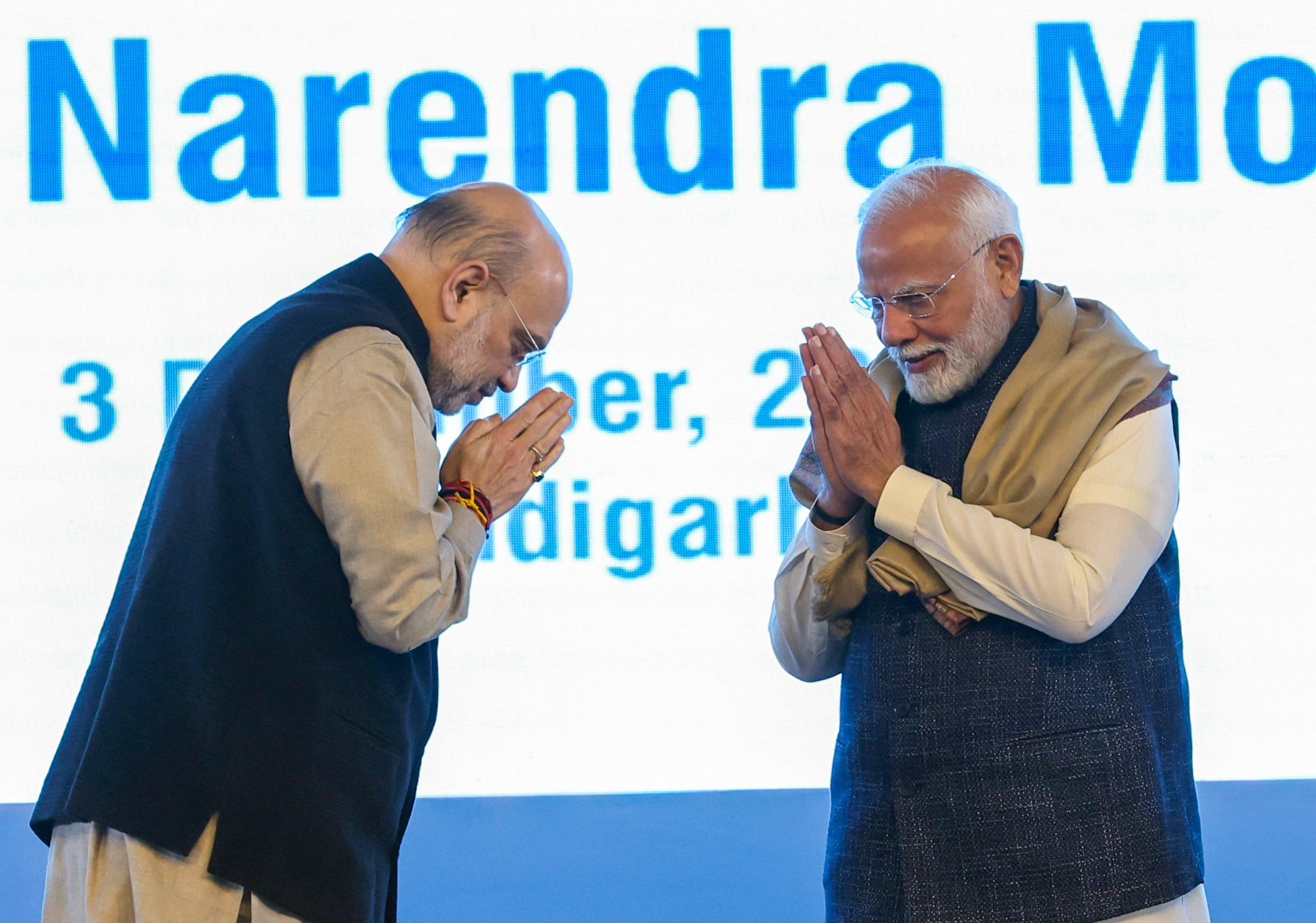Union Home Minister Amit Shah on Tuesday praised Chandigarh for becoming the first city in India to fully implement the country’s new criminal laws.
These laws, including the Bharatiya Nyay Sanhita (BNS), Bharatiya Nagrik Suraksha Sanhita (BNSS), and Bharatiya Sakshya Adhiniyam (BSA), aim to modernize India’s legal system, making it more efficient and just. Shah said that these laws will be implemented across the country within the next three years.
Calling it “a golden day for the Indian criminal justice system,” Shah highlighted Chandigarh’s achievement, with police, courts, jails, and the Forensic Science Laboratory (FSL) collaborating to bring the reforms into effect. He emphasized that the outdated criminal laws, which were inherited from British colonial rule, were originally designed to serve British interests rather than the people of India.
“Earlier laws were 160 years old—they were made in the British parliament for the protection of British rule, not for the people. The laws that PM Modi has brought are made by Indians, for Indians,” Shah said. He stressed that the new laws prioritize delivering justice, not just punishment.
One key reform is the establishment of the “Director of Prosecution” role, aimed at curbing corruption in the legal process. Another significant change is the replacement of the term “sedition” (rajdroh) with “treason” (deshdroh).
Shah said that over 11 lakh FIRs (First Information Reports) have already been filed under the new laws, with 9,500 cases resolved within four months.
Prime Minister Narendra Modi, who also addressed the event, underscored the outdated nature of the old laws, which were designed by the British to suppress Indians.
“In 1947, after centuries of slavery, when independence was finally achieved, the nation had dreams and enthusiasm. But while the British left, the laws they created to enslave us remained.”
PM Modi criticized the post-independence continuation of colonial-era laws, stating, “These laws were a means of oppression. Even after independence, the same penal code and mindset continued, with small changes here and there. But the character of these laws remained intact.”
The new laws were crafted with extensive input from Chief Justices of India, High Court judges, legal experts, and civil society members. These reforms, which came into effect on July 1, aim to make India’s legal system more transparent, efficient, and suited to the needs of today’s society.
(ANI)




















